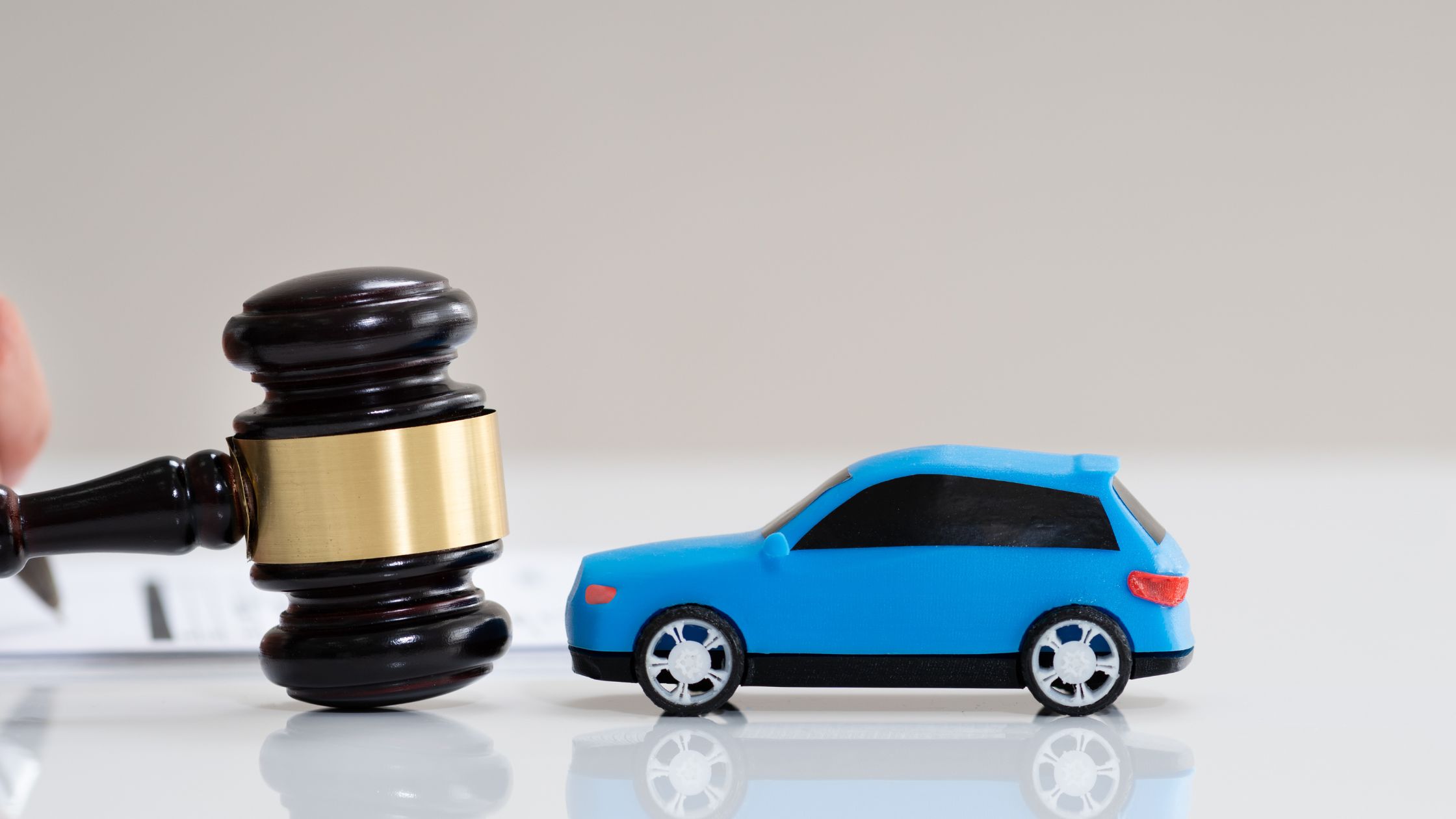Understanding Common Truck Accident Injuries and Their Impacts
Introduction: Due to the size and weight of commercial trucks, truck accidents often lead to severe injuries. Understanding the most common types of truck accident injuries is crucial as it empowers victims and their families to navigate the aftermath and seek appropriate medical and legal assistance. This guide explores the frequent injuries sustained in truck accidents and their consequences, providing a sense of control in a challenging situation.
1. Head and Brain Injuries
Head and brain injuries, among the most severe consequences of a truck accident, include:
- Concussions: A concussion is a mild traumatic brain injury (TBI) that occurs when the brain is jolted inside the skull. Symptoms can range from mild headaches and confusion to more severe cognitive impairments.
- Traumatic Brain Injuries (TBIs): More severe TBIs can result in long-term or permanent damage. Victims may experience memory loss, difficulty concentrating, and changes in behavior or personality.
- Skull Fractures: The impact of a truck accident can cause the skull to fracture, leading to potential brain damage and other complications.
2. Neck and Back Injuries
Neck and back injuries are common in truck accidents due to the force of the collision. These injuries include:
- Whiplash: Whiplash occurs when the neck is rapidly forced back and forth, causing strain on the muscles and ligaments. Symptoms include neck pain, stiffness, and headaches.
- Herniated Discs: A crash’s impact can rupture or bulge the discs between the vertebrae, leading to pain, numbness, and weakness.
- Spinal Cord Injuries: Damage to the spinal cord can result in partial or complete paralysis. The severity depends on the location and extent of the injury.
3. Broken Bones and Fractures
The force of a truck accident can cause broken bones and fractures in various parts of the body. Commonly affected areas include:
- Arms and Legs: The limbs are often vulnerable to collisions, leading to fractures that may require surgery and extensive rehabilitation.
- Ribs: Broken ribs can cause significant pain and may also damage internal organs, leading to further complications.
- Pelvis: Pelvic fractures can be severe and often require surgical intervention to heal properly.
4. Internal Injuries
Internal injuries are particularly dangerous because they may not be immediately apparent. These injuries include:
- Organ Damage: The impact of a truck accident can cause damage to internal organs such as the liver, kidneys, and spleen. These injuries often require immediate medical attention.
- Internal Bleeding: Internal bleeding can occur as a result of blunt force trauma. It can be life-threatening if not diagnosed and treated promptly.
5. Cuts and Lacerations
Cuts and lacerations are common in truck accidents and can range from minor to severe. These injuries include:
- Superficial Cuts: Minor cuts and scrapes may heal with basic first aid, but deeper lacerations require stitches or more extensive medical treatment.
- Deep Lacerations: Deep cuts can damage muscles, tendons, and nerves, potentially leading to long-term complications and the need for surgical intervention.
6. Burns
Burns can occur in truck accidents, especially if a fire or explosion occurs. These injuries include:
- Thermal Burns: Caused by direct contact with flames, hot surfaces, or hot liquids.
- Chemical Burns: Result from exposure to hazardous chemicals that may be transported by commercial trucks.
- Electrical Burns: Occur if the accident involves electrical components or power lines.
7. Emotional and Psychological Injuries
Beyond physical injuries, truck accidents can also lead to emotional and psychological trauma. These include:
- Post-Traumatic Stress Disorder (PTSD): Victims may experience PTSD, characterized by flashbacks, nightmares, and severe anxiety related to the accident.
- Depression and Anxiety: The aftermath of a truck accident can lead to depression and anxiety, affecting the victim’s quality of life and ability to function normally.
- Emotional Distress: The trauma of an accident can cause significant emotional distress, impacting relationships, work, and daily activities.
Conclusion: Truck accidents can cause a wide range of injuries, from minor cuts and bruises to severe, life-altering conditions. However, understanding the most common types of injuries and their potential impacts can provide a sense of security. It can help victims and their families seek appropriate medical care and legal assistance, ensuring they receive the support and compensation they deserve. If you or a loved one has been injured in a truck accident, rest assured that consulting with experienced medical and legal professionals can help you navigate this challenging time.
FAQs (Frequently Asked Questions) About Truck Accident Injuries:
Q1: What should I do immediately after a truck accident to address potential injuries?
It’s crucial to seek medical attention immediately, even if you don’t feel seriously injured. Some injuries may not be immediately apparent, so contacting emergency services and following up with a thorough medical examination is essential.
Q2: How can I prove that my injuries were caused by the truck accident?
- Document everything related to the accident and your injuries, including medical records, photographs of the scene, and witness statements. Consulting with a personal injury attorney can also help gather and present necessary evidence.
Q3: What types of compensation can I receive for truck accident injuries?
- Victims may be entitled to compensation for medical expenses, lost wages, pain and suffering, emotional distress, and other damages. An experienced attorney can help determine the full extent of your claim.
Q4: Can I file a claim if I was partially at fault for the truck accident?
- You can still file a claim in many states if you are partially at fault. The compensation you receive may be reduced based on your percentage of fault. Consult an attorney to understand how your state’s laws apply to your case.
Q5: How long do I have to file a claim for truck accident injuries?
- The time limit for filing a claim, known as the statute of limitations, varies by state. Act quickly and consult with an attorney to ensure you file your claim within the required timeframe.
Q6: What should I do if the insurance company offers me a settlement for my injuries?
- Before accepting any settlement offer, consult with an attorney. Insurance companies often try to settle for the lowest amount possible. An attorney can help evaluate the offer and negotiate for fair compensation.
Q7: How can I manage the medical expenses associated with my truck accident injuries?
- If you have health insurance, it can cover some of your medical expenses. Additionally, a successful personal injury claim can help recover costs not covered by insurance. Discuss your options with your attorney and medical providers.
Q8: What are the long-term impacts of common truck accident injuries?
- Long-term impacts vary depending on the type and severity of the injury. Some injuries may result in chronic pain, limited mobility, permanent disability, or ongoing emotional and psychological issues. Early and consistent medical treatment can help manage these impacts.
Q9: Can I receive compensation for emotional and psychological injuries from a truck accident?
- Yes, emotional and psychological injuries such as PTSD, depression, and anxiety are compensable. These injuries can significantly impact your quality of life and may be included in your personal injury claim.
Q10: How can an attorney help with my truck accident injury case?
- An attorney can guide you through the legal process, help gather and present evidence, negotiate with insurance companies, and represent your interests in court if necessary. Their expertise can significantly increase the chances of receiving fair compensation for your injuries.
For more detailed information, visit the original article on Reiner, Slaughter & Frankel’s website.










